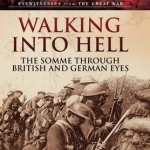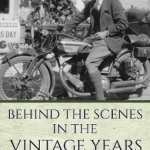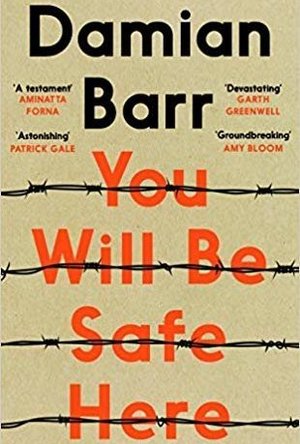
BBC History Magazine
News and Magazines & Newspapers
App
Enjoy BBC History Magazine, the UK's best-selling history magazine, on your iPhone and iPad. Dive...
The Victory with No Name: The Native American Defeat of the First American Army
Book
In 1791, General Arthur St. Clair led the United States army in a campaign to destroy a complex of...
Hazel (1853 KP) rated Havana Sleeping in Books
Dec 17, 2018
<i>Havana Sleeping</i> is a historical mystery novel by British author Martin Davies, which is based on real events that occurred in Cuba during the 1850s. Although the Slave Trade had been abolished in England, there were still people in America and Cuba who would be happy for slavery to remain legal. George Backhouse was posted to Havana, Cuba as a British Judge to take a stand against the illegal slave trading.
Backhouse ends up getting involved in a lot of complicated situations that could potentially spark a devastating war. His path also becomes tied up with the other main character, Leandra Leigh. Whilst most of the characters are real historical figures, Leandra appears to be fictional. A dear friend of hers, a watchman, was murdered during a supposed robbery and although the matter has been closed for a couple of years Leandra is determined to find out the truth – something of limited value in Havana. To begin with Backhouse and Leandra’s investigations seem unrelated, but a connection begins to build up as the story goes on.
In all honesty, the novel was very difficult to get into. There is nothing wrong with the actual writing as such, it is in fact written well and grammatically correct, however there was a lack of excitement in the narrative. It was also difficult to keep track of the characters – admittedly that may have been the point in the case of a couple of people, but as a result it was impossible to connect story. There were a few attempts of showing emotion, mostly surrounding Leandra’s character, yet this failed to arouse much interest.
From a historical point of view, those interested in Cuban and British history of this time period may be interested in reading <i>Havana Sleeping</i> and the author also includes some factual notes at the end of the book, but anyone hoping to get a story of some kind is bound to be disappointed.
Va Va Froome: The Remarkable Rise of Chris Froome
Book
On 21 July 2013 Chris Froome made history as the second British cyclist to win the Tour de France -...

Walking into Hell 1st July 1916: Memoirs of the First World War
Geoffrey Malins and Edward G. D. Living
Book
The 1st July 1916 was the blackest day in the history of the British Army when 60,000 unsuspecting...

Behind the Scenes in the Vintage Years
Book
Arthur Bourne was at the centre of British motorcycling from 1923-1951. This is his fascinating...

Top of the Pops: 50th Anniversary
Patrick Humphries and Steve Blacknell
Book
'It's Number One - it's Top of the Pops'. It's not just the story of a long-running television...

Parade's End: Some Do Not...; No More Parades; A Man Could Stand Up -; The Last Post
Julian Barnes and Ford Madox Ford
Book
Booker Prize-winner Julian Barnes introduces Ford Madox Ford's masterpiece Parade's End - now a...
ClareR (6054 KP) rated You Will Be Safe Here in Books
May 12, 2019
My dad told me about the concentration camps during the Boer war as I went off to study German at university. He’d read about the history part of the course I’d be studying, and WW2 was missing. He thought it important that I should know that the National Socialists had got all of their ‘best’ ideas from the British (“everyone should shoulder their share of guilt”). I admit I didn’t know this much detail though.
The descriptions in this book are heartbreaking. Cruelty disguised as safe-keeping. New Dawn is cruelty disguised as (re)education. As I attempted to empathise with Will’s mother, I couldn’t help but judge her - how could a mother NOT protect her child? How could she be so easily influenced to give him to someone else to ‘make him a man’? She thinks that this IS protecting him though. The world is a harsh place, and those who are different are not always accepted by their peers (I have two sons, one of whom is disabled. I’ve always worried about how he will be accepted by other children - unfounded worries so far, as it turns out.).
The old adage ‘cruel to be kind’ is just that though: old, outdated. The new world order should be about tolerance and understanding, something that is totally lacking in some of the characters of this book (and out in the real world, too). ADHD is NEVER cured with cruelty. Respect is never gained through starvation and deprivation.
This book is written with such care and understanding: I could imagine the sights and sounds of both camps, smell the cigarette smoke of Willem’s grandmother. I felt so much for Sarah van der Watt and her son and Willem. People put into impossible circumstances. The way we find out about what happens to Sarah and her son is devastating: Willem and his class visit Bloemfontein concentration camp, and Fredericks story is part of their history lesson. This was so cleverly done, and although seemingly detached by the years that had passed, its only one hundred pages or so for the reader.
This is such a moving story, and it shows that history really can affect the present day. I can’t recommend reading this book enough.

Margaret Thatcher: The Authorized Biography, Volume Two: Everything She Wants: Volume two
Book
The sensational second volume of Charles Moore's bestselling authorized biography of the Iron Lady...

